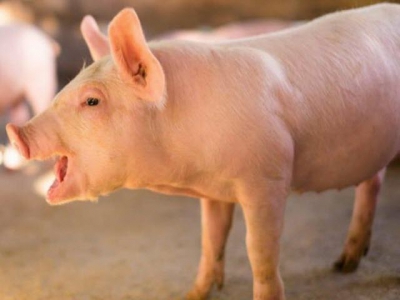Feed mitigant study yields initial results in pigs

FFAR-funded study finds five commercially available feed additives may stop spread of swine viruses.
Initial results of a Foundation for Food & Agriculture Research (FFAR) research grant, conducted by Pipestone Applied Research, show that five commercially available feed additives may stop the spread of deadly viral diseases in pigs, according to an announcement from FFAR.
Dr. Scott Dee, research director of Pipestone Applied Research, presented the results of the first phase of this study during the National Pork Industry Conference in Wisconsin Dells, Wis., FFAR said.
The study confirms that three diseases — porcine reproductive and respiratory syndrome (PRRS), porcine epidemic diarrhea virus (PEDV) and Seneca Valley A (SVA) — can spread through contaminated animal feed, FFAR reported.
The study tested whether specific feed additives, or mitigants, can deactivate the viruses and reduce the spread of disease. Researchers introduced the three viruses into animal feed and then individually added five mitigants to the contaminated animal feed. The research team then tested the pigs at days 6 and 15 for the presence of the three viruses and evaluated the animals for signs of disease.
Despite the presence of PRRS, PEDV and SVA in the feed, the mitigants protected almost all animals from becoming positive for infection by PRRS, PEDV and SVA and significantly reduced the number of animals that developed signs of disease, according to Dee.
This study is one of the first to produce results in a research setting that replicates commercial conditions.
FFAR said a second phase of the research later this year will test five additional mitigants to assess their effectiveness in protecting swine herds from PRRS, PEDV and SVA. A separate FFAR-funded grant at Kansas State University will build on this research to test whether the mitigants can be added to feed to protect against African swine fever. Scientists hope to understand how to control or even stop the spread of this deadly virus.
FFAR announced earlier in July that Dee’s team received the grant through its Rapid Outcomes from Agricultural Research program, which deploys research funding in response to emerging or unanticipated threats to the nation’s food supply or agricultural systems. The grant is being matched by ADM Animal Nutrition, Anitox, Kemin Industries, PMI Nutrition Additives and the Swine Health Information Center.
Related news
 Study shows viruses inactivated by porcine plasma processing
Study shows viruses inactivated by porcine plasma processing Spray dried porcine plasma (SDPP) producer, Darling Ingredients, continually runs tests to ensure virus inactivation through processing of that ingredient.
 How to produce pigs without using a high level of zinc oxide
How to produce pigs without using a high level of zinc oxide Novus International Inc. presented at the Zero Zinc Summit in Copenhagen in Denmark earlier this week on the efficacy of chelated trace minerals as a reliable
 Method removes bacteria from boar semen
Method removes bacteria from boar semen Low-density colloid centrifugation shown to reduce bacteria load in collected boar semen without addition of antibiotics.